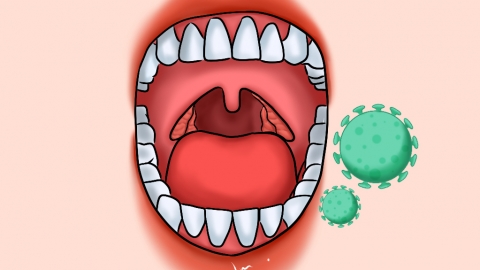What are the early symptoms of tonsil tumors?
Under normal circumstances, as a malignant tumor occurring in the tonsils, the early symptoms of tonsil tumors mainly include sore throat, foreign body sensation, mild pain, tonsillar enlargement, and cervical lymph node swelling. A detailed analysis is as follows:

1. Sore Throat: Patients may experience a slight discomfort in the throat. This sensation is often not obvious and easily overlooked. It usually manifests as an unusual feeling in the pharynx, becoming more noticeable during swallowing. As the condition progresses, this discomfort may gradually worsen.
2. Foreign Body Sensation: In the early stages of tonsil tumors, patients often feel as if there is a foreign object lodged in the throat, as if something is stuck there, unable to be coughed out or swallowed down. This sensation may become more pronounced during dry swallowing, affecting normal swallowing sensations.
3. Mild Pain: Some patients may experience mild pain in the tonsil area, typically presenting as a dull or aching pain. The pain intensity is generally mild but may worsen slightly during swallowing. Initially, the pain may occur intermittently and is often mistaken for pain caused by common inflammation.
4. Tonsillar Enlargement: The tonsil on the affected side will become enlarged, appearing significantly asymmetrical compared to the other side. The enlarged tonsil's surface may be uneven and have a harder texture. Upon touch, it feels different from a normal tonsil. This enlargement may progress gradually, affecting the normal space within the pharynx.
5. Cervical Lymph Node Swelling: In the early stages of tonsil tumors, cervical lymph nodes may swell, often on one side only. The swollen lymph nodes tend to be hard in texture and poorly mobile, typically causing no significant pain or only mild tenderness. Such lymph node swelling often indicates a potential for tumor metastasis.
If any of the above symptoms are noticed in daily life, timely medical examination should be conducted to confirm diagnosis and take appropriate measures as early as possible, to improve treatment outcomes and quality of life. Adequate rest, increased water intake, and a bland, easily digestible diet are recommended to help alleviate discomfort and promote recovery.




